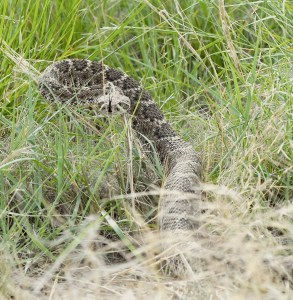The Search For Perfection: Trainer Brings Years Of Experience, Success To The Field
Published 3:00 pm Saturday, April 17, 2021

- Whether it is a gun dog or a hunting dog that will also be in competition, year-round training is important. That is especially the case for younger dogs that can slip into bad habits during the off-season.
Maybe it is because they help extend the season that hunting dogs are so popular. Unlike hunters, whose season is based on calendar dates, hunting dog owners are looking at year-round activity.
While many hunters are at least initially satisfied to have just a gun dog, many others are getting into hunt tests to push their dog athletically as far as it can go and to give themselves that much more time in the field with their dogs.
Trending
Tyler’s Grant Huff is one of those. A lifelong duck hunter, Huff started training Labs as gun dogs in 1997. After seeing the difference between a serviceable hunting dog and a polished one, Huff transitioned to professionally training in 2001.
“I just graduated from a gun dog/companion to the competitive aspect, and then developing a passion for doing that it became a side job and then progressed into a profession,” Huff explained.
After taking a couple of years off to pursue other ventures, Huff has returned to training, working with Alex Brittingham’s One Shot Retriever Kennels near Frankston.
“I always knew in the back of my mind it was something I would like to get back into, either full time or part time,” Huff said.
Working with dogs used only for hunting or also for competition, Huff brings credentials. Having trained dogs that have competed in both United Kennel Club and American Kennel Club, he has worked with dogs that have 15 Grand passes and one selected for the UKC Hall of Fame.
Huff said the difference between a gun dog and one that is fully trained is efficiency.
Trending
“If you are a high volume shooter going out with a group killing 30-40 a day, they are in better physical condition and structure. They are almost on auto pilot from a handling aspect. A 4-year-old dog trained to the competitive point, you can have a bird down at 300 yards and I can get the dog there a lot faster. Two or three whistles,” Huff said.
Whether working with a new puppy or a younger dog, the off-season is the time to set the foundation for any training whether the hunter is going to do it themselves or eventually turn the dog over to a trainer.
“The biggest thing is getting them to walking on a leash, get them used to having that restraint. Keep them crazy to retrieve, but don’t overwork them. Throw three or four times, and once they are excited put them up. I want them hungry to work,” Huff explained.
For young Labs born last summer, hopefully they have already been introduced to water and birds, even if dead ones brought home from a hunt.
Huff said he prefers not starting a dog on serious training until it is six or eight months old.
He added it is important to continue to work young dogs continuously throughout the summer and early fall to keep them from regressing. Huff said, in contrast, older seasoned dogs can take the summer off and be ready to go come hunting season.
One key to summer work is finding a time when the dog can be worked without overheating. It often does not match with the owner’s schedule, but the early morning hours are usually the safest because they are going to be the coolest.
For those who are considering using a trainer at some point, it is important to talk with them well in advance to make sure any home training is consistent with what will be used by the professional.
“There are so many different training programs. You want to start by speaking the same language. I had one owner who brought in a puppy he started with sit and stay. I don’t use stay,” Huff explained.
Electronic collars are now commonplace on both hunting dogs and house pets. Huff said if used properly, they are just another training tool, but allow control well beyond the length of a leash. Along with the use of a whistle and hand commands, the dog’s range can be expanded well beyond that of lesser trained dogs, and the retrieve will be made using less energy.
While One Shot Retrievers has made its reputation with hunting breeds, Huff said it is expanding to basic pet obedience because there really is no difference between the two uses. They also offer kennel services for all breeds.
One Shot Retrievers will again offer a snake avoidance clinic Aug. 29. Although primarily for hunting breeds that are used in the field in early fall, the clinic is good for any breed.
For more information on training, contact Huff at 903-571-8875 or Brittingham at 903-681-1954, or check One Shot Retrievers on Facebook or Instagram.





